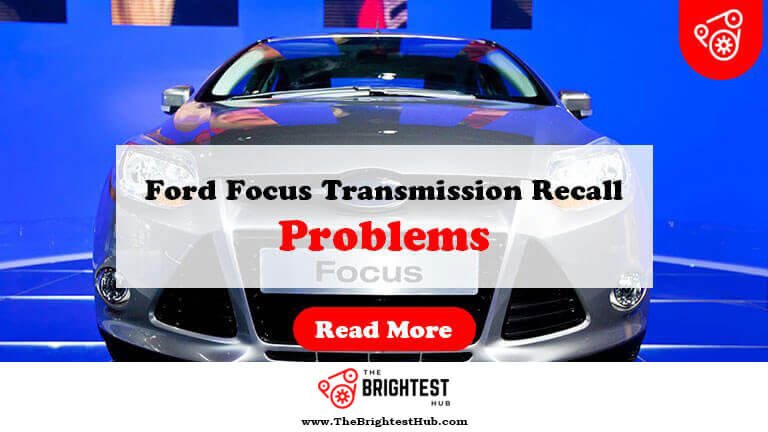Nissan Versa 2010 Problems: Avoid These Common Issues!
The 2010 Nissan Versa has several common problems, including transmission issues and electrical faults. Owners often report problems with fuel efficiency and excessive tire wear.
The 2010 Nissan Versa stands out for its affordability and practicality. However, like any vehicle, it comes with its share of challenges. Many owners have experienced issues that can affect performance and safety. Understanding these problems can help prospective buyers make informed decisions.
Common complaints range from transmission failures to electrical glitches that can disrupt daily driving. Addressing these issues early can save time and money in the long run. For current owners, being aware of these potential pitfalls is essential for maintaining the vehicle’s reliability and performance. Regular maintenance and prompt repairs can enhance the lifespan of this compact car.
Introduction To Nissan Versa 2010

The Nissan Versa 2010 is a popular compact car. It appeals to many drivers for its affordability and efficiency. This model offers a comfortable ride and decent features. However, it has some common problems that owners should know about.
The Rise Of Compact Cars
Compact cars gained popularity in the early 2000s. Rising fuel prices and urban congestion made them appealing. Drivers wanted vehicles that were easy to park and economical.
- Compact cars are typically lighter and smaller.
- They offer better fuel efficiency.
- Many come with modern technology.
The Nissan Versa 2010 embodies these qualities. It fits well in tight spaces and saves on gas.
Nissan Versa 2010 At A Glance
The 2010 Nissan Versa is known for its:
- Spacious interior
- Affordable price
- Good safety ratings
Here’s a quick overview:
| Feature | Details |
|---|---|
| Engine | 1.6L 4-cylinder |
| Fuel Economy | Up to 34 MPG on the highway |
| Seating Capacity | 5 passengers |
| Trunk Space | Up to 14.8 cubic feet |
The Nissan Versa 2010 is a solid choice for budget-conscious buyers. Understanding its features helps in making an informed decision.
Common Problems With The Transmission
The 2010 Nissan Versa has several transmission issues. Many owners report problems. Understanding these issues helps in early detection and repair.
Faulty Transmission Signs
Recognizing faulty transmission signs is crucial. Here are some common indicators:
- Slipping gears: The car unexpectedly changes gears.
- Delayed shifting: Difficulty in shifting from park to drive.
- Unusual noises: Grinding or whining sounds during operation.
- Warning lights: Check engine or transmission light illuminates.
- Fluid leaks: Puddles of reddish fluid under the car.
Dealing With Transmission Failure
Transmission failure can be costly. Here’s how to manage it:
- Identify symptoms: Monitor for signs of transmission problems.
- Check fluid levels: Ensure the transmission fluid is adequate.
- Visit a mechanic: Get a professional assessment.
- Consider a rebuild: Repairing may be more cost-effective.
- Regular maintenance: Change transmission fluid as recommended.
Taking these steps can minimize risks. Early detection often saves time and money.
Engine Issues In Detail
The 2010 Nissan Versa has faced several engine problems. Owners reported various issues affecting performance. Understanding these problems can help you make informed decisions.
Overheating Concerns
Overheating is a common problem in the 2010 Nissan Versa. This can lead to serious engine damage. Here are some key points to consider:
- Coolant leaks: Check for any visible leaks under the car.
- Thermostat failure: A faulty thermostat can cause overheating.
- Radiator issues: Blockages or damage in the radiator affect cooling.
- Water pump failure: A broken water pump leads to poor coolant circulation.
Addressing overheating issues quickly is crucial. Ignoring them can result in costly repairs.
Unexpected Stalling
Unexpected stalling is another frequent complaint. This can happen at any speed. Here are some common causes:
| Cause | Description |
|---|---|
| Fuel Pump Failure | Inadequate fuel delivery causes the engine to stall. |
| Ignition Problems | Worn spark plugs can lead to misfiring. |
| Sensor Malfunctions | Faulty sensors can disrupt engine performance. |
| Electrical Issues | Battery or wiring problems can cause unexpected stalls. |
Drivers should stay alert for warning signs. Regular maintenance can help prevent stalling issues.
Suspension And Steering Woes
The 2010 Nissan Versa has its charm. Yet, it faces some issues with suspension and steering. These problems can affect your driving experience. Understanding these quirks is essential for safe driving.
Handling Quirks
Drivers often report specific handling problems. These can make the car feel unstable. Here are some common issues:
- Loose steering wheel: This can lead to poor control.
- Inconsistent handling: The car may feel wobbly on turns.
- Noise from the suspension: Clunking sounds can indicate wear.
These quirks can be frustrating. They may arise from worn-out components or misaligned parts. Regular maintenance can help identify these issues early.
Fixes For A Smoother Ride
Addressing suspension and steering issues can improve your Versa’s performance. Here are some effective fixes:
- Check alignment: Proper alignment ensures even tire wear.
- Inspect suspension components: Look for worn-out struts and shocks.
- Replace bushings: Worn bushings can cause noise and instability.
- Fluid maintenance: Regularly check and replace power steering fluid.
Consider consulting a professional for these repairs. A smooth ride can enhance your driving experience.
| Problem | Solution |
|---|---|
| Loose steering wheel | Inspect and replace worn components |
| Inconsistent handling | Check alignment and tire pressure |
| Noise from suspension | Replace worn struts and bushings |
Electrical System Glitches
The Nissan Versa 2010 faces several electrical system glitches. These issues can lead to frustrating experiences for drivers. Understanding these problems helps in effective troubleshooting.
Battery Drains And Solutions
One common problem is the battery drain. Many owners report that their battery dies unexpectedly. This can be due to several factors:
- Faulty alternator
- Corroded battery terminals
- Parasitic draw from accessories
To address battery drain, consider these solutions:
- Check the alternator output.
- Inspect battery terminals for corrosion.
- Disconnect accessories when not in use.
Here’s a simple table outlining common symptoms and solutions:
| Symptoms | Possible Solutions |
|---|---|
| Car won’t start | Test battery voltage |
| Warning lights on | Check fuses and connections |
| Electrical accessories malfunction | Inspect wiring for damage |
Navigating Electrical Failures
Navigating electrical failures can be tricky. Here are some tips to help:
- Regularly check your battery health.
- Keep connections clean and secure.
- Use a multimeter to test circuits.
Prompt attention to these issues keeps your Versa running smoothly. Stay proactive to avoid bigger problems down the line.
Braking System Defects
The braking system in the 2010 Nissan Versa has some notable issues. Problems with brakes can lead to serious safety concerns. Understanding these defects helps owners take action promptly.
Common Braking Problems
Many Nissan Versa owners report issues with their braking systems. Here are some common problems:
- Brake Noise: Squeaking or grinding sounds can indicate worn-out pads.
- Soft Brake Pedal: A spongy feel suggests air in the brake lines.
- Vibrating Brakes: Pulsation during braking may mean warped rotors.
- Brake Warning Light: This light signals a serious braking issue.
Maintaining Your Brakes
Regular maintenance is essential for safe driving. Follow these tips to keep your brakes in top shape:
- Check Brake Pads: Inspect them every 10,000 miles.
- Flush Brake Fluid: Replace it every 2 years to avoid moisture buildup.
- Inspect Rotors: Look for wear and replace if necessary.
- Listen for Noises: Address any unusual sounds immediately.
Taking care of your braking system improves safety and performance. Stay proactive with maintenance to prevent major issues.
Interior And Comfort Issues
The Nissan Versa 2010 has several challenges regarding interior comfort. Owners report issues related to wear and tear, as well as overall comfort. These problems can affect the driving experience. Understanding them helps potential buyers make informed decisions.
Wear And Tear Inside
The interior of the Nissan Versa 2010 shows signs of wear over time. Common problems include:
- Seat Fabric Damage: The fabric can fray or tear.
- Dashboard Cracks: Exposure to sunlight may cause cracks.
- Door Panels: Scratches and dents are frequent.
Many owners express dissatisfaction with the overall quality. The materials used may not withstand daily use well. Regular cleaning and maintenance can help, but issues may persist.
Improving Interior Comfort
To enhance comfort in the Nissan Versa 2010, consider these tips:
- Seat Covers: Use high-quality seat covers for protection.
- Floor Mats: Invest in durable floor mats to prevent wear.
- Sun Shades: Use sun shades to protect the dashboard.
- Regular Cleaning: Clean upholstery and surfaces regularly.
Making these changes can significantly improve comfort. A well-maintained interior enhances the driving experience. Small investments in care lead to better longevity.
| Issue | Solution |
|---|---|
| Seat Fabric Damage | Use seat covers |
| Dashboard Cracks | Apply sun shades |
| Door Panels Scratches | Use protective films |
Tips For Avoiding These Issues
Preventing problems with your 2010 Nissan Versa is crucial. Regular care keeps your car running smoothly. Here are some essential tips to help you avoid common issues.
Regular Maintenance Schedule
Set a routine for car maintenance. Follow these steps:
- Oil Changes: Change oil every 3,000 to 5,000 miles.
- Tire Rotation: Rotate tires every 5,000 to 7,500 miles.
- Brake Inspection: Check brakes every 10,000 miles.
- Fluid Levels: Monitor all fluid levels regularly.
Use a checklist for each maintenance visit. This helps keep track of important tasks. Consider using a calendar or an app for reminders.
When To Consult A Professional
Know when to seek expert help. Watch for these signs:
- Unusual noises from the engine.
- Warning lights on the dashboard.
- Difficulty steering or braking.
- Fluid leaks under the car.
Don’t ignore these signs. Early detection can save money. Schedule an appointment with a trusted mechanic. Regular check-ups ensure your Nissan Versa runs well.
Conclusion: Is The Nissan Versa 2010 Right For You?
Choosing the right car is important. The 2010 Nissan Versa has its strengths and weaknesses. Understanding these can help you make the best choice.
Weighing The Pros And Cons
The Nissan Versa 2010 offers several benefits and drawbacks. Below is a summary of the key points:
| Pros | Cons |
|---|---|
| Affordable price | Engine noise can be loud |
| Good fuel economy | Limited power for highway driving |
| Spacious interior | Basic features in lower trims |
| Reliable safety ratings | Outdated design |
Consider these factors carefully. The Versa may work well for some drivers, but not for others.
Making An Informed Decision
Assess your needs before deciding. Here are some questions to ponder:
- What is your budget?
- Do you prioritize fuel efficiency?
- How much space do you require?
- Are you okay with basic features?
Test driving the Nissan Versa 2010 can help you understand its feel. Pay attention to the driving experience. Assess comfort and usability. Weigh your options against other vehicles in the same category. The right choice depends on your personal preferences and lifestyle.
Frequently Asked Questions
What Are Common Nissan Versa 2010 Issues?
Common issues include transmission problems, electrical failures, and excessive engine noise. Regular maintenance can help mitigate these.
How Reliable Is The 2010 Nissan Versa?
The 2010 Nissan Versa has average reliability ratings, with some owners reporting significant issues over time.
What Are The Engine Problems In Nissan Versa 2010?
Engine problems may include stalling, rough idling, and oil leaks. Regular oil changes can help prevent these issues.
Are There Recalls For The 2010 Nissan Versa?
Yes, there have been recalls for issues like faulty airbags and improper fuel tank placement. Check with Nissan for details.
What Should I Check Before Buying A Used Versa?
Inspect the transmission, electrical system, and service history. A thorough check can reveal hidden issues.
Conclusion
The Nissan Versa 2010 has its share of issues that owners should be aware of. Regular maintenance can help mitigate some problems. Always stay informed about recalls and common complaints. By understanding these challenges, you can make a more informed decision about this vehicle.
Drive safely and choose wisely.






